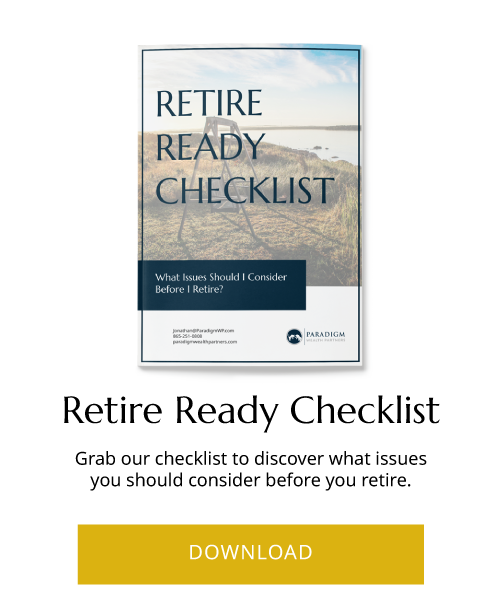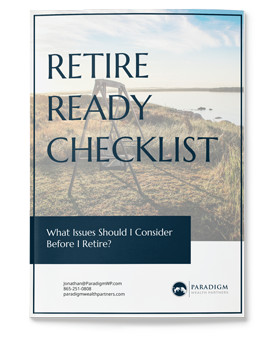Rent or Buy: What’s Best For Your Retirement?
Deciding to retire is a big decision. And it’s not the only one you’ll have to make. You’ll also face decisions about where you want to live and whether you want to rent or buy a place. We’ll explore each option to help you decide if renting or buying is best for your retirement.
Renting
Many people, retired or not, prefer to rent a home even if they can afford to buy. But like anything, renting has its pros and cons.
Pros
- Of course, many people’s biggest pro of renting during retirement is the lack of maintenance. Anything that goes wrong is someone else’s problem, someone else’s expense, and can be handled with a single phone call (providing you have a good landlord or management company). This is very appealing to a lot of retirees who want fewer responsibilities.
- If you are making a big move during retirement, to be closer to family, to a warmer climate, to a more rural or urban area, or a new country, renting means little commitment. If you don’t like the new area, you only have to stay until the lease is up (or you can pay the penalty and break the lease early).
- Typically retirees downsize to a smaller place which means fewer rooms to clean.
- If you’re in an apartment or condo rather than renting a whole home, you won’t have any lawn work.
- An apartment or condo might have amenities that a home doesn’t, like a pool, hot tub, and gym.
- If property values in your area decline, that’s not your problem.
Cons
- While some people are happy not to have to take care of a home or yard, those who enjoy those tasks might miss them, and with more time to fill, that can feel like an even bigger loss.
- I don’t believe renting is “throwing away money” as some people do. You’re exchanging money for a place to live, after all! But you aren’t building equity when you rent, which means there’s no equity to tap if you should need it.
- If your home was paid off, you’ll now have to pay housing costs. Although a home, even one you’ve paid off, still comes with costs like upkeep, property taxes, and HOA fees, if applicable.
- Depending on a number of factors, renting a place can be more expensive than a mortgage payment.
- You have less security. If the owner of your rental wants to sell it or turn it into a vacation rental, you’ll have to move out.
Buying
Homeownership has long been part of the “American dream” for many people, and being retired doesn’t necessarily change that, but a house comes with certain responsibilities and expenses.
Pros
- Owning a home represents security to many people, both in the sense that it’s your place and no one can make you leave (other than the bank if you default on your mortgage) and that it’s a financial asset.
- A home is generally larger than an apartment, so you’ll have more room. This is especially nice if you like to have friends or family visit.
- A home can be passed to your heirs after your death.
- A mortgage payment can cost less than rent but remember to factor in the other costs of owning a home.
Cons
- As you age, upkeep may become more difficult, and the layout of your home may be hard to navigate if you have more than one floor.
- Owning a home gives you less flexibility. If you can no longer live in your home and have to move into a facility or with family, you’ll likely have to sell the house. If the housing market is bad at the time, you may be forced to sell at a loss or for less money than if you were able to wait out the market.
Factors to Consider
Now that we’ve listed the pros and cons of renting and buying during retirement let’s look at some additional considerations.
Location
Where you want to live during retirement may be the deciding factor between renting and owning. If you want to move to a more rural area, buying a house might be very affordable, and if it’s really rural, there may not be a lot of rentals available compared to a more populated area.
But if you want to move to a more in-demand area, a city, or a beach town, for example, buying may be out of reach.
Mortgage Rates
The mortgage rates at the time you want to retire may also be a significant factor in your decision. At the time of writing, mortgage rates are going up, pricing some people out of the market.
The Housing Market
Until fairly recently, it was a seller’s market. Buyers were offering not only cash but more than the asking price because the housing market was so hot. If that’s the case when you’re thinking of buying, you may be priced out of the market.
Price-to-Rent Ratio
I love a good rule of thumb or formula when it comes to answering personal finance questions, and there is a formula that can help you decide whether to rent or buy during retirement, the price-to-rent ratio. But keep in mind that the ratio is just based on numbers. And most if not all financial decisions should take other things into consideration, namely the pros and cons listed above!
To get a price-to-rent ratio take the monthly rent of a place you’re considering (or the average rent for the area you want to live if you’re not apartment shopping yet) and multiply it by 12, so it represents a year of rent.
Divide the annual rent number by the purchase price of a similar property. A ratio greater than 20 favors renting, and a ratio less than 20 favors buying.
If you have some big decision about retirement, renting or buying, or anything else related to your finances, I’m here to help! You can schedule a meeting so we can discuss how to make sure you can Create the Life You Love!



